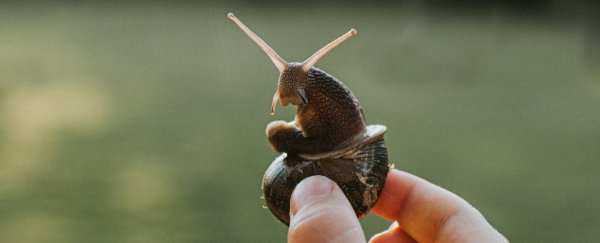The signs of death are everywhere, if you look. For years, scientists have rung the alarm bell, warning that grave declines in animal biodiversity around the globe herald the onset of what will be Earth's sixth mass extinction.
Despite the looming weight of evidence to suggest this grim phenomenon is unfolding all around us, not everybody agrees.
"Drastically increased rates of species extinctions and declining abundances of many animal and plant populations are well documented, yet some deny that these phenomena amount to mass extinction," says bioscientist Robert Cowie from the University of Hawai'i at Mānoa.
"This denial is based on a highly biased assessment of the crisis which focuses on mammals and birds and ignores invertebrates, which of course constitute the great majority of biodiversity."
In a new study, Cowie and his fellow researchers seek to refute the deniers by focusing the spotlight on the decline of invertebrate creatures, which receive significantly less attention than vertebrate animals in discussions of biodiversity loss – even in the esteemed IUCN Red List of Threatened Species, arguably the world's foremost record of species extinctions, yet skewed towards birds, mammals, and amphibians.
"The Red List is heavily biased," Cowie and colleagues write in their paper.
"Almost all birds and mammals but only a minute fraction of invertebrates have been evaluated against conservation criteria… The implicit, and sometimes explicit, assumption is often made that assessments of extinction rates of mammals and birds are reflective of extinction rates of all biodiversity, an assumption accepted not only among the vertebrate-centric media but also among many vertebrate-centric scientific and conservation organizations."
Since 1500 CE, about 1.5 percent of evaluated mammal and bird species have gone extinct per the IUCN's count, the researchers say – which isn't so far off the 'background' extinction rate that exists in between mass extinction events.
But if we extrapolate based on estimations of invertebrate extinctions not considered by the IUCN, the situation looks far worse.
To highlight the vast scale of biodiversity loss being missed in IUCN figures, the researchers focused on mollusks, which constitute the second largest phylum of invertebrate animals after arthropods, with invertebrates themselves representing the vast majority of known animal species (up to 97 percent, some think).
Based on "bold" extrapolations from a number of previous studies examining invertebrate declines, the researchers suggest between 7.5 to 13 percent of all the roughly 2 million known plant and animal species on Earth could have gone extinct since 1500 CE – an extinction toll orders of magnitude greater than what the IUCN recognizes.
"Including invertebrates was key to confirming that we are indeed witnessing the onset of the sixth mass extinction in Earth's history," Cowie says.
Depending on where you look, however, some kinds of species are faring better than others in the current crisis, the researchers point out, with marine species extinctions and plant extinctions not yet looking as grave as the rate of extinctions seen in many land animals.
Nonetheless, particular extinction rates so far suggested by the IUCN Red List are not something that reveal the full picture of biodiversity loss, the researchers say.
"Current extinction rates, notably in terrestrial invertebrates, are far higher than background extinction rates," the authors write.
"We also show that use of IUCN Red List extinction data to determine current extinction rates inevitably leads to dramatic under-estimation of rates, except for birds, mammals and perhaps amphibians."
As to whether these perilous trends can be stopped, the researchers don't know the answer. But they note that denying the crisis or failing to act upon it is an abrogation of our moral responsibility, and call upon scientists and conservationists to keep drawing attention to the biodiversity crisis, and to continue nurturing the "innate human appreciation" of biodiversity.
They also note that we likely won't be able to save all the species currently going extinct, but if we act with care and urgency, we might at least manage to preserve most, and document them for future generations.
"Dedicated conservation biologists and conservation agencies are doing what they can, focused mainly on threatened birds and mammals, among which some species may be saved from the extinction that would otherwise ensue," the researchers explain.
"Perhaps, with efforts to publicize the crisis, biodiversity scientists may achieve some successes, such that a significant component of currently extant global biodiversity can be preserved in the wild, and many of those species that will be lost from the wild can at least be preserved in museums for future generations to study and marvel at."
The findings are reported in Biological Reviews.




Geen opmerkingen:
Een reactie posten